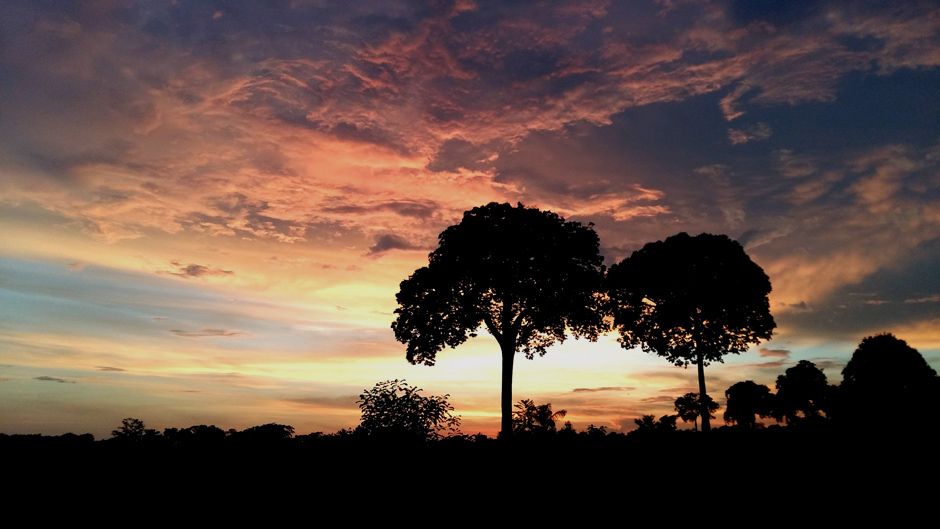
Vision
of a Permaculture in
Amazonia
Welcome
Terra do Caju is a project for tropical permaculture and “Terra Preta” in Amazonia – Brazil. It is located on Lago Itaúba and can be reached via the Rio Mamori. We produce all kinds of food for the region. Our focus is on sustainable farming with local resources and autonomous cycles in the spirit of permaculture. We also focus on the refertilization of degraded soils with the help of Terra Preta.
Terra do Caju is a non-profit organization. Every donation helps to drive our project forward and make our vision of a more sustainable life in the Amazon become reality. Thank you very much.
Donation account:
PC 85-431434-9
IBAN CH22 0900 0000 8543 1434 9
Address:
Verein Terra do Caju
Gartenhofstrasse 21
8004 Zürich
In the light
of the morning sun
/ /
What is permaculture?
Permaculture is one of the new forms of agriculture such as social, ecological or biodynamic agriculture. This movement has recognized that today’s agricultural economy has no sustainable future and is, therefore, looking for new ways.
For us, permaculture is also a way of life. In addition to food production, permaculture is also a living space where the workplace and recreational areas are united, where economic development coincides with human development and a place where the golden morning sun greets us anew every day.
What makes a tropical permaculture so special?
The best example of a tropical permaculture is the tropical rainforest. Making optimal use of the horizontal, the rainforest strives multi-layered from the dusky, decaying layer to the shady shrub layer and from the lush palm roof to the heights of the enormous giants of the jungle. For us, this is a prime example of how a multi-layered, abundant plant production can be created in a small space.
At the same time, it must be ensured that nutrient cycles are closed sustainably, organically and with local resources, since especially in tropical conditions crops sometimes yield harvests twice, three times or even all year round. In addition, the climate is limited to a rainy and dry season. This situation brings certain challenges with it which must be addressed.
Nevertheless, we believe that a permaculture with mixed crops here in the jungle is a viable, sustainable and profitable way to cultivate the land. Our goal is to investigate the productivity of various crop communities within the context of tropical permaculture and to determine the profitability of our agricultural model.
Natures language
As mentioned at the beginning, our soil is more than just a place for production. It is also Mother Earth, who gives us strength every day, who lets us smell exquisite scents and winks at us every morning when the morning sun rises over the lake.
A healthy and balanced existence is important to us. This includes to feel the sun, to be aware of the surroundings and to start the day with joy and happiness. To better learn the language of nature in order to communicate with her. In this sense, we are on our way of this unique journey.
Terra do Caju is an experiment which means that both successes and failures are achieved. However, we believe that we will succeed in developing interesting systems that offer new solutions. Our goal is to use our model of tropical permaculture to produce in harmony with nature and the local population for regional food supply, inspiring both local and international imitators. With this in mind, any researched topics and information on the project will be published in our media library and thus made freely accessible.
Terra do Caju collaborates with students, interested professionals, volunteers, local, national, and international institutes and universities. The non-profit project is supported by private individuals and researches independently.
What moves us?
What do we move?
/ /
Experience Terra do Caju
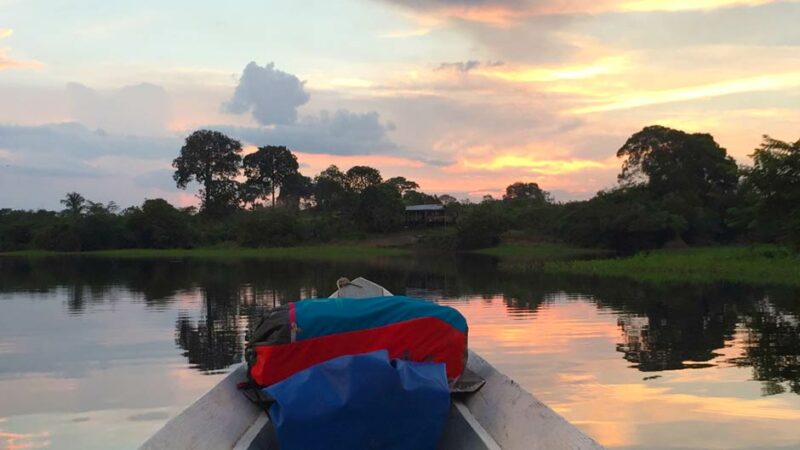
Arrival at Terra do Caju in the evening light.
For those who would like to experience Terra do Caju for themselves, this can be done during the rainy season as harvesters from December to March, or during the dry season on the occasion of two visitor weeks. From 24 to 30 September 2020 we invite all interested parties to a permaculture week to get to know our farm, the plantations, fruits and their processing. From 5 to 12 November 2020 to a Spiritual Week with the themes of energies in the jungle. These visitor weeks will be an unforgettable experience with music, dance and singing.
Terra do Caju goes online
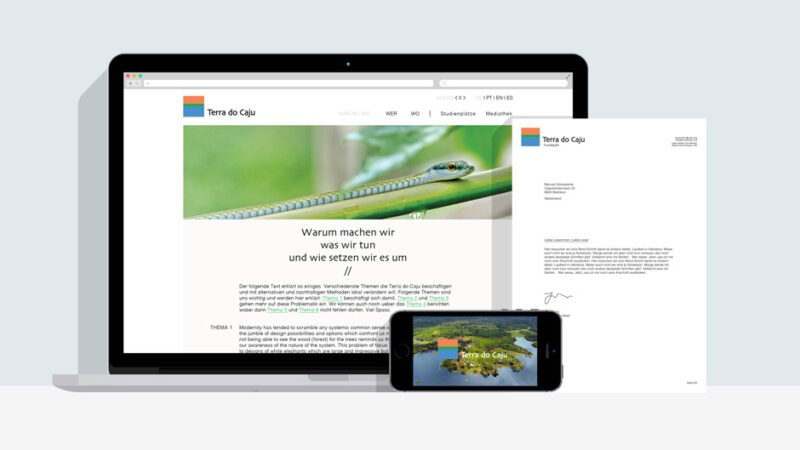
Terra do Caju in a new guise.
It’s finally here, the promised day. Our website is online and at the same time, we have developed and defined our design. Sometimes it takes a bit longer than expected but we believe that the time is right. The website informs about the project and our life here on Terra do Caju. But we also hope that with the Mediathek, where we publish all our ideas, results, data, research, etc., we can start an interesting exchange with other permaculture enthusiasts and nature lovers.
With the arrival on Terra do Caju in 2013, a time of familiarization, of listening, of absorbing and of course of experimenting and learning began. In the process, the villagers’ from the neighboring community, as well as the local residents of the project, were a tremendous help. The project evolved into what it is today. The time was now ripe to document our ideas, progress, and views and to publish them in an appropriate way on the internet. Therefore an important step was to define our visual appearance. Christoph Bocchetti, a graphic designer from Zurich, offered his help. He has accompanied our project since 2017. Today he is on Terra do Caju for the third time, where he helps with both hands and heart. During this time he developed the design. An important aspect was to have a colorful, adaptable signet that is simple to make. The logo is intended to be an anchor for the various uses and the diverse range of the project. At this place, a big thank you to Christoph.
Birth Darius
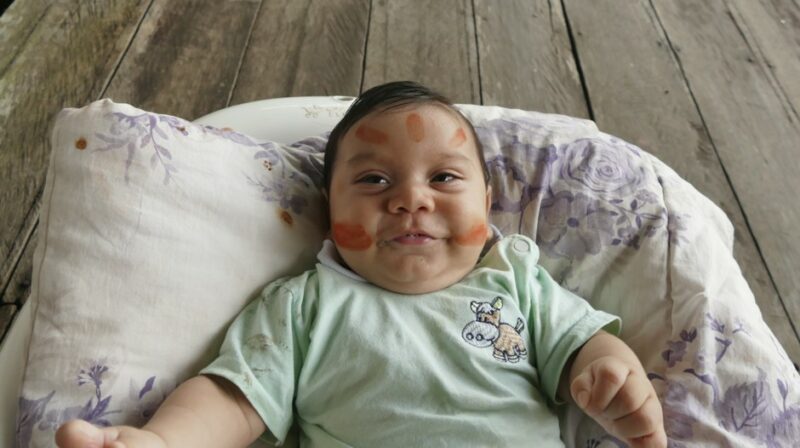
Darius Kunz Macedo, born 1.1.2019, size 50cm, weight 3,7kg
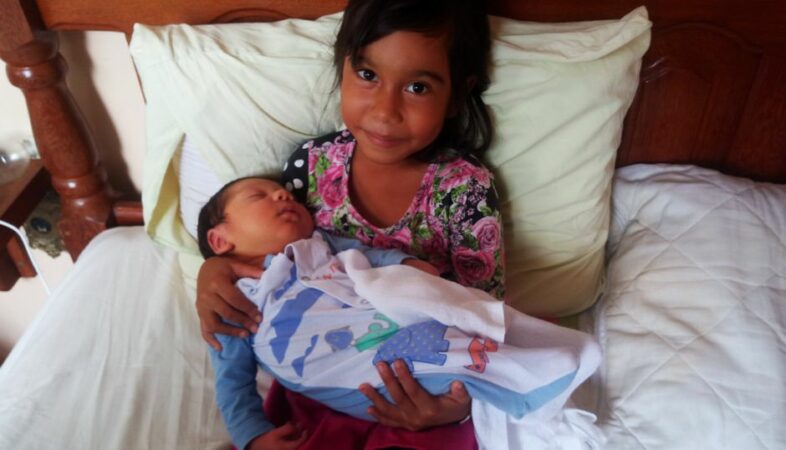
Ana and Darius
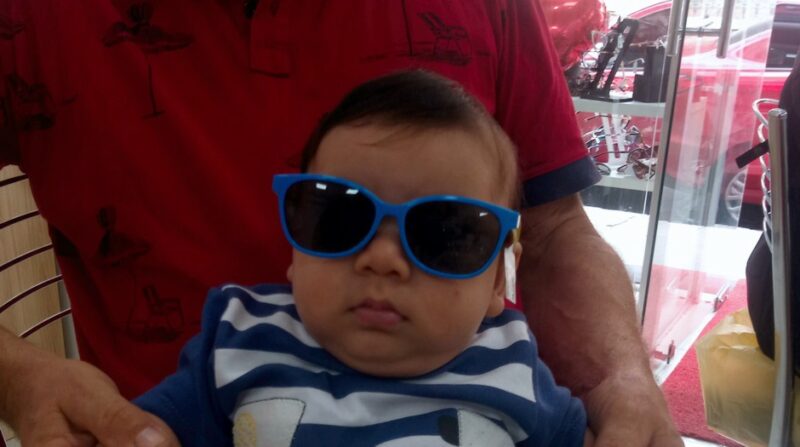
Darius with 4 months
Not unexpectedly a new inhabitant of Terra do Caju was born on January 1st; Darius Kunz Macedo. We are happy that the birth went well despite a midnight voyage to Manaus, that he is healthy and has been developing well in nature at Lago Itaúba so far.
New solar system up and running
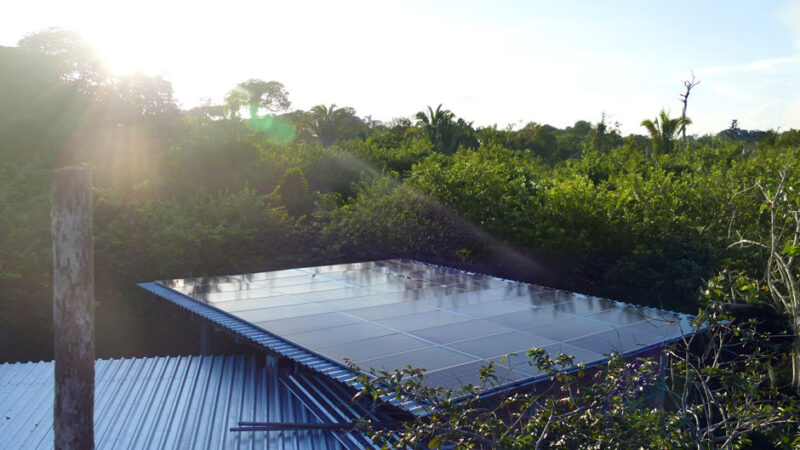
40 solar panels on the roof of the working space 3.
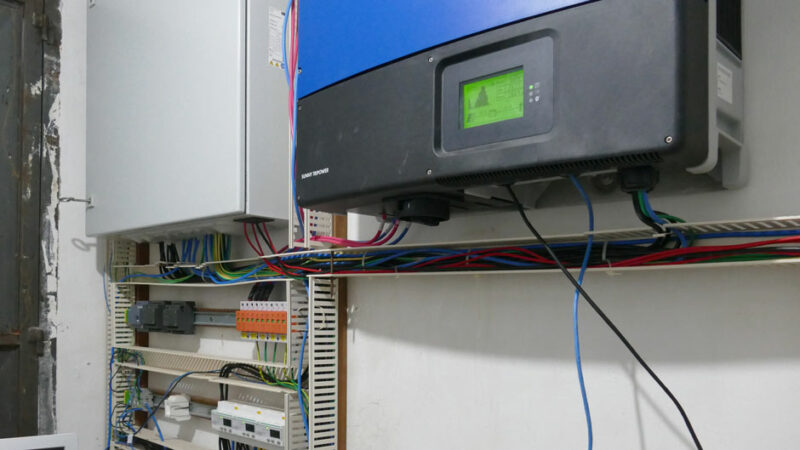
The core-piece of the solar plant in the technical room.
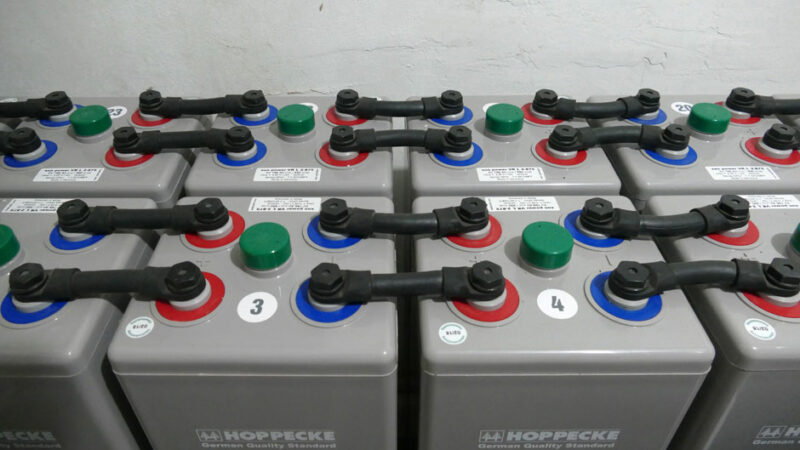
The batteries are joined and arranged in a series.
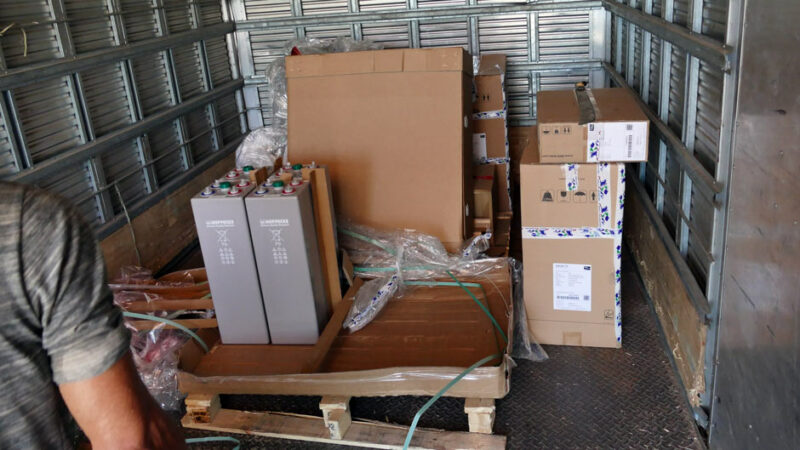
Delivery of the solar system.
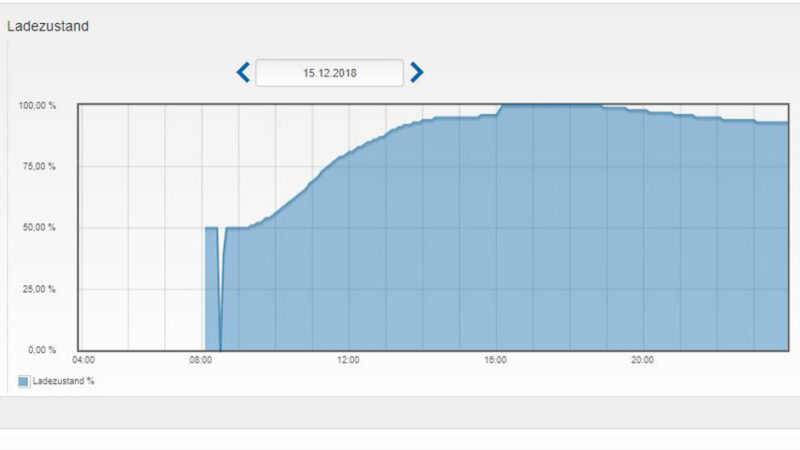
December 15, 2018: The plant successfully started operating at 8:00 am.
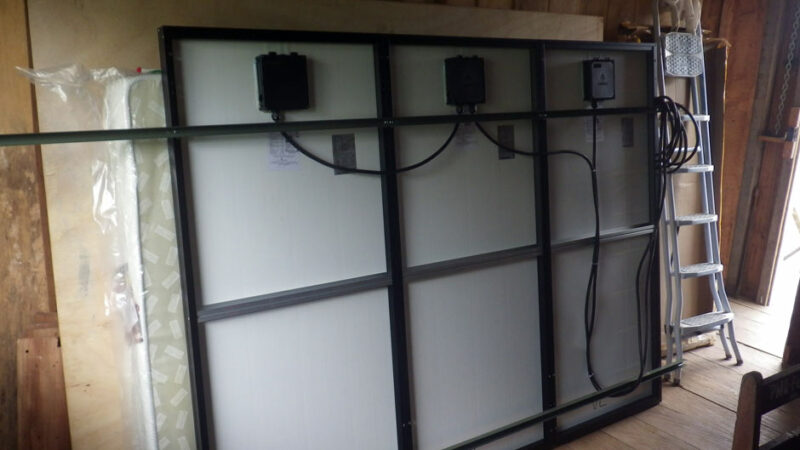
The 3 panels of the first solar plant in 2013.
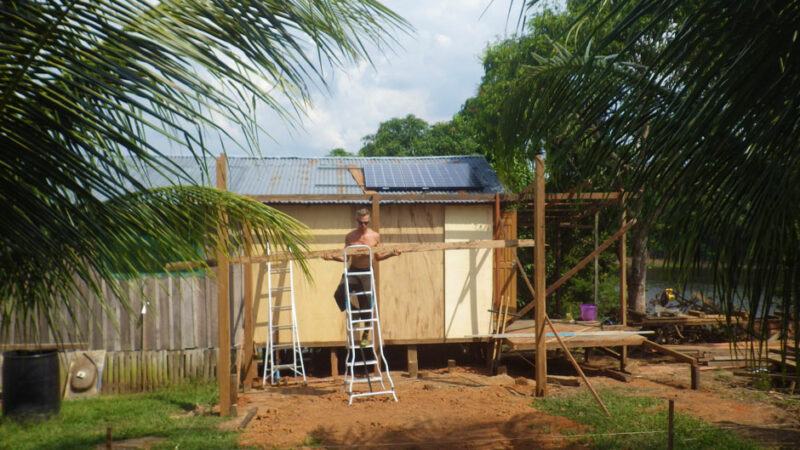
Omri building the kitchen in 2013. On the roof the first solar system in operation.
On 15 December we were finally able to boot up the new solar system. For our life here this means a quantum leap. The SMA system operates a three-phase grid and with a wattage of 13.6 kW and a capacity of up to 40 amps, it leaves nothing to be desired. Machines start up like “Grasshoppers” and even the welding only triggers a small purr at the inversor in the technical room. In order to complement our permaculture with an irrigation system and the large kitchen building, an expansion of the solar system to a total of 28 kW is planned. We would like to take this opportunity to thank Alain for his tireless efforts in installing and starting up the system. Although the system is of top quality and forms the heart of our project, the purchasing and installation was anything but smooth and efficient:
When we moved in on 5 October 2013, we ate dinner by candlelight. However, the first solar power was soon to come. Already on October 25th the candle became history, almost history. Because the batteries took it precisely with the warranty and after only 2 years they gave up. With new batteries came new hope but the result remained the same. We now knew that we wanted a more sustainable, more durable and safer system for the next installation. All the longer took the evaluation of the new system. But when in November 2016 we finally wanted to order the proposed system in Switzerland, the order was rejected with the reason “We do not deliver to Brazil”. The whole process started all over again. On 22.12.2017 our order was finally confirmed by the new supplier. Now the worrying began: Will the plant arrive as long as Alain was here with us for the assembly? But the delivery was delayed and so he decided to travel back to Switzerland before assembling and installing the plant in June 2018. But unfortunately the customs blocked the cargo and it was also not possible to install the system during this visit. It was not until the 4th of July that the shipment finally arrived at Terra do Caju and so Alain returned for the third time to Brazil for the installation. From November 3 to mid-December he installed the first stage of the system for us. On December 15th it was finally time and we were able to harvest the first sunrays of the day with the help of the new plant.